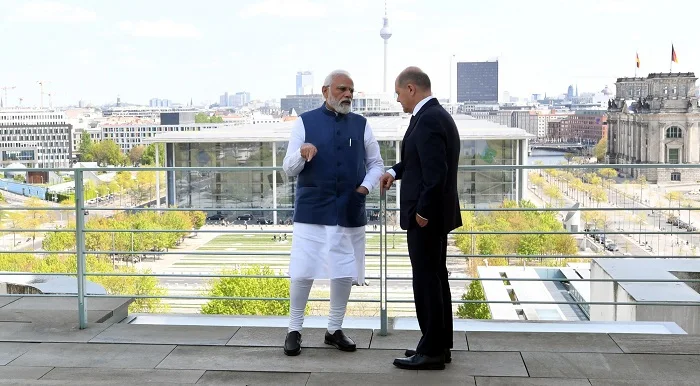German Chancellor Olaf Scholz will pay a State visit to India on February 25-26, his first trip to New Delhi in his current role.
Scholz will be accompanied by senior officials and a high-powered business delegation. He is also scheduled to visit Bengaluru on February 26.
This is the first standalone visit of a German Chancellor to India since the biennial Inter-Governmental Consultation (IGC) mechanism commenced in 2011, which is a whole-of-government framework under which Ministers from both countries hold discussions in their respective areas of responsibility and report on the outcome of discussions to the Prime Minister and Chancellor.
Scholz will be accorded a ceremonial welcome at the forecourt of Rashtrapati Bhawan, following which Prime Minister Narendra Modi and Chancellor will hold discussions on bilateral, regional and global issues. The two Leaders will also interact with CEOs and business leaders of both sides. He will also call on President Smt. Droupadi Murmu.
The India-Germany Strategic Partnership is underpinned by shared values, trust and mutual understanding. Robust investment and trade linkages, cooperation in the areas of green and sustainable development and growing people-to-people ties have strengthened bilateral relations. India and Germany also work closely at multilateral and international platforms, notably as part of the G4 for UNSC reforms.
India and Germany have longstanding and fruitful cooperation in addressing challenges related to green and sustainable development, climate change and environment with active and mutually beneficial whole-of-government engagement.
Germany has become a member of and supports the International Solar Alliance (ISA) and the Coalition for Disaster Resilient Infrastructure (CDRI). Germany also supports India’s initiative for the ‘One Sun One World One Grid’ launched at COP 26 to accelerate adoption of green grids and solar energy
“Chancellor Scholz’s visit will enable both sides to take stock and progress on the key outcomes of the 6th IGC, strengthen security and defence cooperation, work towards closer economic ties, enhance opportunity for mobility of talent and give strategic guidance to ongoing collaboration in Science & Technology,” said the Ministry of External Affairs on Monday.




















